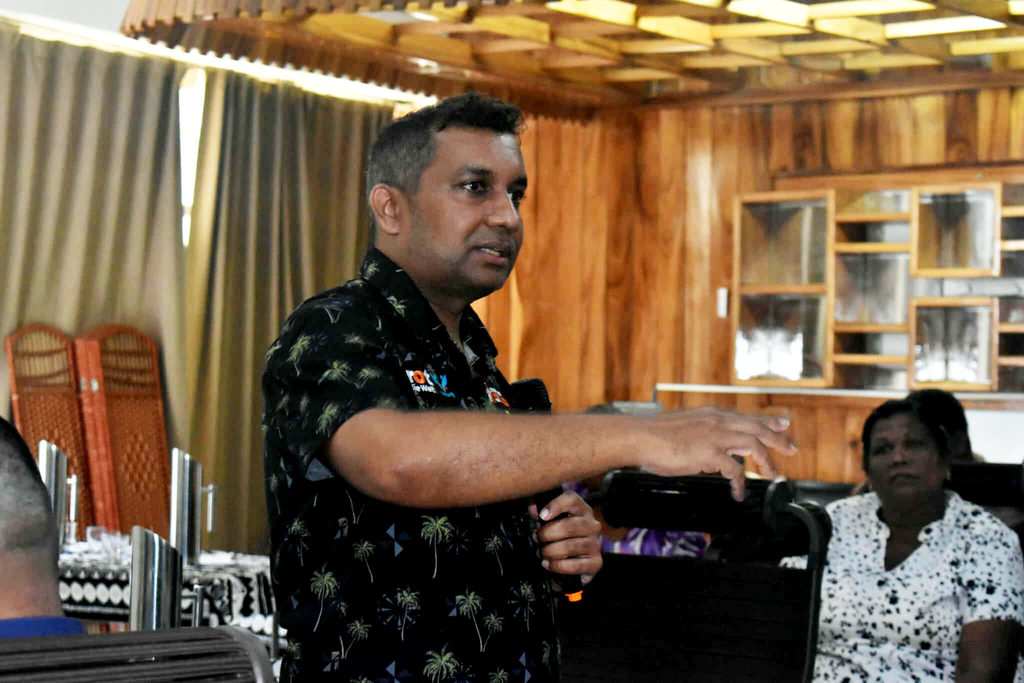DIALOGUE Fiji executive director Nilesh Lal says the Constitution grants too much power to the executive branch of government, warning this imbalance is hindering democracy in Fiji.
“There’s been a lot of discussion around this, and rightly so,” said Mr Lal.
“The Supreme Court has made a decision that significantly lowers the threshold for changing the Constitution.”
While the ruling has triggered widespread public debate, Mr Lal believes the deeper issue lies in the structure of the Constitution itself.
“However, what I talked about is the fact that the Constitution creates a very powerful executive arm.
“Too much power is concentrated in the executive, particularly in the Prime Minister and the Attorney-General, and that, in many ways, is constraining democracy.”
Speaking at a human rights workshop in Labasa, Mr Lal said the ability of other State institutions to check executive power was weak under the current framework.
“The ability of other mechanisms or arms of the State to safeguard against the excesses of the executive is quite limited under the 2013 Constitution.
“That is one of the major issues.”
The Supreme Court’s recent interpretation of the amendment provisions allows changes to the Constitution through a simple majority in Parliament, a move welcomed by some but heavily criticised by others, who fear it could pave the way for rushed or politically-driven reforms.
Dialogue Fiji chief calls for repeal, review of laws
SEVERAL Fiji laws do not align with democratic principles and should be reviewed or repealed, says Dialogue Fiji executive director Nilesh Lal, adding they could stifle legitimate criticism.
He said it was of particular concern that legislation previously criticised by the current Government while in opposition remained unchanged nearly three years into their term and raised serious concerns about their commitment to democratic reform.
“There are several laws that don’t belong in a liberal democracy,” Mr Lal told The Fiji Times.
Dialogue Fiji executive director Nilesh Lal speaks at a human rights workshop at Galaxy Hotel and Apartments in Labasa.
He cited the Public Order Act, which includes provisions criminalising the act of causing “disaffection” toward an entity – a term he described as vague and open to misuse.
“This can stifle legitimate criticism,” he said.
Mr Lal pointed to sedition provisions under the Crimes Act, as well as the Electoral Act, which imposed strict limits on publishing content and prohibited opinion polling in the lead-up to elections.
“These restrictions limit public discourse and transparency around the electoral process,” Mr Lal said.
In addition, he raised concern over Section 24 of the Online Safety Act, which penalised content that caused harm, a term he said was not clearly defined in the legislation.
“The lack of clarity means that even criticism of public officials could potentially be criminalised.”
He said the current Government, while in opposition, had strongly opposed these laws.
“Now, three years later, they haven’t been repealed,” he said.
“This raises serious questions about the Government’s commitment to democratic reform.”
He urged lawmakers to prioritise legislative reform to ensure Fijians’ rights to free speech, political expression and public participation were fully protected.



